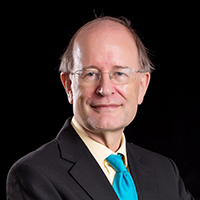27 May 2020
After COVID-19: the University of Nottingham Ningbo Experience

Author
Professor Martin Lockett
Dean of the Faculty of Business, University of Nottingham Ningbo China
Four months after the COVID-19 outbreak closed its campus, the University of Nottingham Ningbo China (UNNC) is now a month into recovery with over three-quarters of staff and students back on campus. What have we learned about managing a university after the worst of the virus emergency is over – and how have we maintained academic standards and the student experience?
UNNC was the first UK university campus in China. Today it has 8,000 students studying programmes ranging from undergraduate to doctoral degrees leading to UK degrees. Our aim is to provide a UK-style international education in China. It is a true research-oriented university rather than a teaching campus with 500 academic staff, 64% from outside mainland China.
It became clear that China faced a public health emergency after almost all our students and many faculty members had left for their Chinese New Year vacation during January. The campus was shut down, apart from staff and students living on site. We rapidly decided to delay the start of the new semester and go online for at least a month. In reality, 100% online learning lasted two months. During this time, the virus abated rapidly, and a majority of international staff returned to Ningbo, enabling face-to-face teaching to resume. Eventually, at the end of April 2020, students were allowed to return. Around 90% of domestic students will return, but only 12% of international students.
Like other universities, we moved to fully online teaching to enable students to continue their studies. In three weeks, we achieved a level of digital delivery that would have taken years in normal circumstances. Lectures were pre-recorded with interactive teaching sessions on Zoom, timed to fit globally distributed staff and students.
Threshold academic standards were maintained by insisting that all courses [modules] had to be passed as usual. Marking standards and assessment requirements are the same. However, students’ classifications and average mark benefit from a ‘no academic disadvantage’ policy if their grades fall below past averages. Extenuating circumstances processes have been streamlined and evidence requirements reduced. While not perfect, the student experience of online learning was generally good
Now that we are teaching on campus again, what are the challenges we have been facing and that others can expect?
Voluntary return: to what extent should students be obliged to return? Obviously, those unable to travel or with risky routes were not obliged to return, and we continue to support them online. But what about those who do not want to? After some debate, we allowed a free choice and continued to support such students online.
Length of semester: we extended the teaching semester with two weeks of ‘consolidation and revision’ to enable students whose online study might have been disrupted the opportunity to perform well in final assessments. This has been received well and reduced calls for tuition fee reductions.
Graduating students: we prioritised students who would graduate this academic year to minimise the chance that their job or further study opportunities would be adversely affected. We are now deciding the best type of graduation ceremony or celebration in consultation with students and staff.
Off-campus students: as travel remains restricted, we have accepted that many international students may not be able to arrive at the start of the autumn semester. Teaching plans are ‘hybrid’ face-to-face and online, including support for all off-campus students and for staff unable to return. Contingency plans have to include moving rapidly back to 100% online delivery in the event of a resurgence of COVID-19 in China.
Assessment: while maintaining academic standards, we are more flexible in assessment methods. Online exams have been introduced for off-campus students with similar (or higher) invigilation rigour than on-campus. Communication was critical as students needed to be disabused of a mistaken perception that they would be able to cheat online without penalty. Once this was clear, the number of students returning to campus accelerated!
Admissions: we have reviewed our admissions requirements to be more flexible, for example not holding up applications when physical certified copies of documents are missing due to shutdowns elsewhere. For example, extending the validity period for IELTS scores when applicants can’t take an IELTS test. Unfortunately, we see other universities being rigid in admissions, creating stress for applicants. In one case a UNNC master’s graduate with a distinction in English language teaching and an IELTS test one week out of date was seen to have insufficient proof of English capability for another UK university.
Global thinking: especially in a crisis, there is a danger that international universities’ UK teams focus on ‘close to home’ priorities and issues. When designing policies, it is important to look at their application in different geographies – for example, specifying a starting date for virus-related academic regulations that is right for the UK but not for China.
New opportunities: we are looking hard at what to embed based on our online delivery, for example systematic recording of lectures has been highly valued by students, and computer-based online examinations more relevant to today’s world than handwritten ones. Digital open days have also proved successful as well as being environmentally friendly.
While no one would have wished to have this year’s COVID-19 experience, it has shown how faculty members, professional and support staff at UNNC have done amazing work in maintaining academic standards and quality, as well as developing new student experiences. Hopefully the lessons UNNC has learned are of use to others as they emerge from the COVID-19 crisis.
About the author
Professor Martin Lockett is Dean of the Faculty of Business at the University of Nottingham Ningbo China. He is a QAA reviewer of both UK and transnational education.
